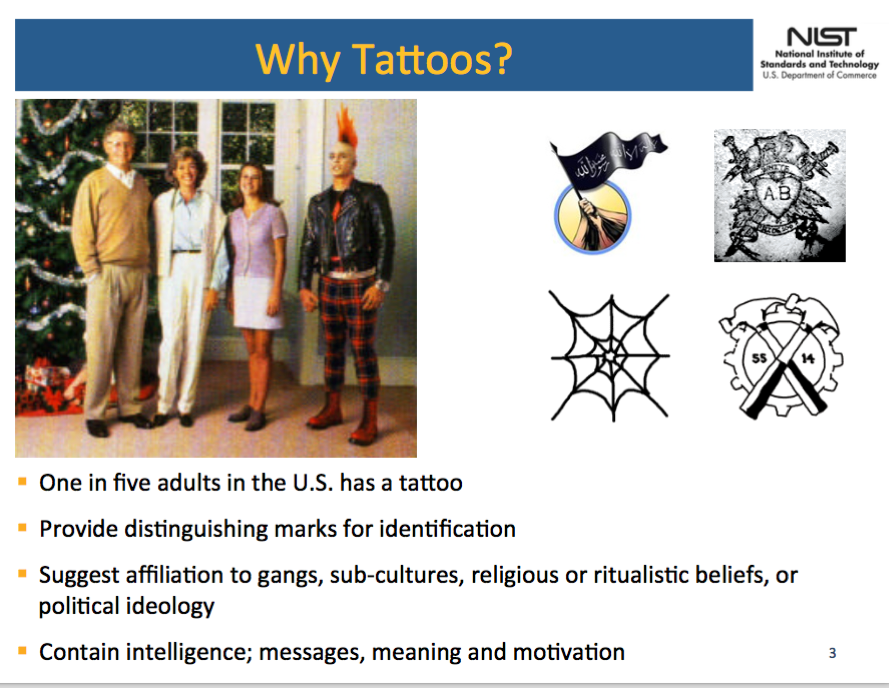An Electronic Frontier Foundation (EFF) investigation just revealed an awfully Orwellian fact: the FBI is working with government researchers to develop advanced tattoo recognition technology. This would allow law enforcement to sort and identify people based on their tattoos to determine “affiliation to gangs, sub-cultures, religious or ritualistic beliefs, or political ideology”.
This tattoo translates to “Revolution is a woman” (Image: AP)
This is unnerving to say the least. The EFF reports that law enforcement wants the new technology to decipher the tattoos that “contain intelligence, messages, meaning and motivation”. The project is part of a broader movement from American law enforcement to use advanced algorithms and big datasets to carry out their work. Civil liberties advocates fear that these projects could be flawed and biased.
The tattoo research started at the National Institute for Standards and Technology (NIST) in 2014, using a database of prisoner’s tattoos. The technology developed by NIST would “map connections between people with similarly themed tattoos or make inferences about people from their tattoos,” the EFF reports. The EFF investigation also claims that the researchers disregarded basic ethical government research standards, especially ones relating specifically to prisoners.
According to the documents obtained, NIST researchers sought permission from supervisors only after they had conducted their initial research. They also didn’t disclose they data they were using came from pictures of prisoners and arrestees.

A slide from NIST tattoo research (Image: EFF)
In addition to programs like tattoo identification and analysis, local police are also increasingly using facial recognition technology to pursue and identify criminals.
These systems give law enforcement a level of power they have never had before. Imagine a database that allows police or investigators to search for people based on the last time their face was identified by a camera or by the tattoos they they and their peers have. As the EFF argues, a database that sorts citizens based on tattoos that may or may not reflect their religious or political beliefs, social affiliations or interests feels not only creepy but also awfully invasive.
The EFF is calling for the research to be suspended due to the disregard for typical government research practices.
